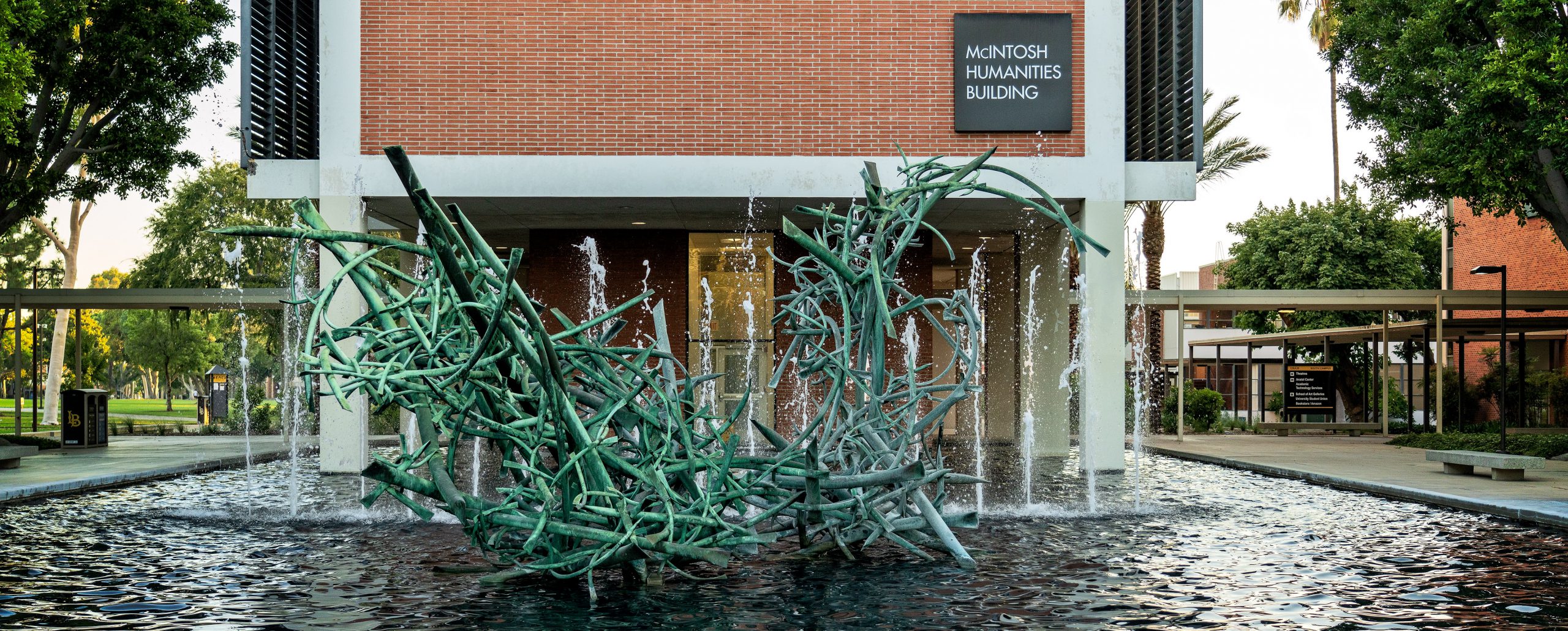The Nile Project
February 4, 2015Published: February 2, 2015
By Shayne Schroeder
The Nile Project is helping to transform the Nile conflict by inspiring, educating and empowering an international network of university students, including many from CSULB, to cultivate the sustainability of their ecosystem. The project, which comes to campus this week, integrates programs in music, education, dialogue, leadership and innovation to engage students across disciplines and geographies.
On Thursday, Feb. 5, at 8 p.m., The Nile Project will stage a concert performance with an orchestra that includes the Ethiopian masenko and saxophone; Egyptian ney, oud, violin, simsimiya, and tanbura; Ugandan adungu; a pan-Nile percussion section; and six vocalists singing in 11 different languages. The concert experience aims to inspire cultural curiosity, highlight regional connections and showcase the potential of trans-boundary cooperation.
Founded in 2011 by two San Francisco-based East Africans—Egyptian ethnomusicologist Mina Girgis and Ethiopian-American singer Meklit Hadero—The Nile Project is in response to the deepening water conflict in the Nile Basin. In a few years, their shared vision has expanded to bring together musicians of all 11 Nile countries and building on its success, the Nile Project is launching education, leadership and innovation initiatives to empower students.
Faculty at CSULB, who have often collaborated with the Carpenter Center to provide students with unique intellectual experiences through a series of participatory and cross-cultural dialogues, have connected with the Nile Project. One of those relationships built is with Comparative Literature and Classics’ Elizabeth Dahab, who took students to the Anatol Center on Tuesday, Feb. 3, at 11 a.m., for the moderated discussion, “The role of musicians in social movements: A perspective from Nile Project artists.”
This discussion with project artists and Girgis explored the role they have personally played in social movements and the challenges and opportunities they have experienced through the project.
On Wednesday, Feb. 4, from 1-3 p.m., human development’s Beth Manke, along with faculty in Africana Studies and women’s, gender and sexuality studies, will bring more than 400 students to Carpenter Center for the discussion, “Women of the Nile: An untapped resource.” The discussion will focus on the role women play in the use, management and supply of resources such as water, food and energy at community and household levels in all the Nile Basin countries. The discussion with female musicians from the Nile Project Collective will explore the challenges and opportunities they’ve faced in the world of traditional music and how these relate to broader regional gender issues.
“I believe that it is important to give students opportunities to connect course concepts to real-world issues and experiences,” said Manke. “To this end, I often take students to performances at the Carpenter Center. Students in my HDEV 470 course will be attending the Nile Project performance and prior to the performance students will read the book Half The Sky and interact with many of the female performers during the Nile Project Residency Workshop titled ‘Women of the Nile: An Untapped Resource,’ co-sponsored by several CLA departments including Human Development.
“Following the performance,” she added, “students will reflect in an essay on the issues raised by the musicians during the workshop and the performance and relate them back to course concepts. Ultimately, I think students understand course concepts and theories at a much deeper level when they can see them in action—in their everyday lives like the performing arts.”
Following that discussion, from 3:30-5 p.m. at Carpenter Center, Engineering’s Rebeka Sultana and a panel of experts will discuss “Civic Engagement and the Management of Water Resources.” With Girgis and select Nile Project musicians, they will explore the use of innovative civic engagement strategies to overcome political stakeholder barriers, create a common understanding between competing interests and build constituencies for action both between and within nations where water has become an impediment to peace and socio-economic development.
For more information on the Nile Project, contact the Carpenter Center at 5623/985-7000.

